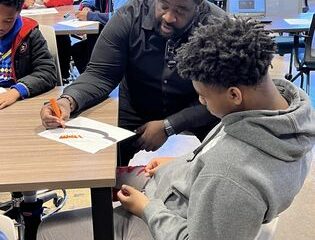4 Love is patient and kind; love is not jealous or boastful; 5 it is not arrogant or rude. Love does not insist on its own way; it is not irritable or resentful; 6 it does not rejoice at wrong, but rejoices in the right. 7 Love bears all things, believes all things, hopes all things, endures all things.
The early Christians were taught many things because the teachings of a man named Jesus were outside the scope of the societal norms. The people of the early Church have inclined to side on the “a tooth for a tooth” mentality. The tensions of everyday life were fueled by distrust and skepticism. Not unlike the times, we find ourselves in today.
February is the month of Love, so I find it appropriate to exam the different levels of love and the things we can do to expand the impact this emotion can have in our own life. Let’s begin with the Power of the Wisdom of Three by examining the three types of love the writers of the Bible focused on; Eros, Philos, and Agape.
Eros meant a love focused on the romantic to the level of infatuation. Eros is also the Greek God of Love. This love is usually founded in physical beauty, which fades over time. This is also the love of modern times; in addition to being the basis of marital love, it is also the exploited love found in debauchery.
Philos, Greek for brotherly love; is a lasting love grounded in shared experiences. As married people live life as one, their shared experiences bellow their love into Philos. This is the love Jesus commonly spoke of. As brothers and sisters in Christ, we each share our existence with one another. It is this love that should breed a deeper understanding, compassion, and forgiveness since we are truly connected to one another.
Agape, Hebrew as a reference to divine love, the love God has for His Son, and that Jesus has for all people. This is the love we should aspire to in our life. On a human level, we would gladly sacrifice ourselves for our children or friends.
What the Bible Says About Love
In Paul’s letter to the Corinthians, he explains what love is and what it is not as it pertains to our reactions to various emotions. We are emotional creatures of habit; our responses are normally typical regardless of who experiences them. That is why parents can uniformly teach children the same lessons when it comes to the impacts of their first love and the fleeting nature of Eros.
The wide majority of married couples begin their journeys based on Eros, the physical love commonly tied to Valentine’s Day. However, if the couple cannot or will not expand that love to Philos, a deeper, more encompassing love, the marriage is destined to struggle and ultimately fail. It is this love that must endure so that the family can thrive. The couple that reaches the Agape level of love enjoys immense friendships and is said to be closer to God.
Paul does a great job in teaching this lesson and it can be summed up in one word, Selflessness. For brotherly and the divine love to endure the test of time, we are called to love selflessly. We must consider others when we make the decisions that matter. If we can truly learn to love and forgive as Jesus loves, in a selfless manner, many of our man-made problems will disappear. It is only when we are selfish in our thoughts, words, and deeds that love fails.
If this is my last post, I want all to know there was only one purpose for all that I have written; to have made a positive difference in the lives of others.
Anthony “Tony” Boquet, the author of “The Bloodline of Wisdom, The Awakening of a Modern Solutionary”














